
If you’ve decided it’s time to lose weight, get healthy or both, how you approach your diet can lead to success or frustration. “You control your own success,” therapeutic dietitian Lena Beal, MS, RDN, LD, tells Piedmont Healthcare. “Adopting healthier behaviors today will help delay, deter, and reduce your risk of diseases like stroke, heart disease, and diabetes. It’s never too late to make a difference.” Here are seven things you should never do on a diet, according to experts.
1
Eating Too Little
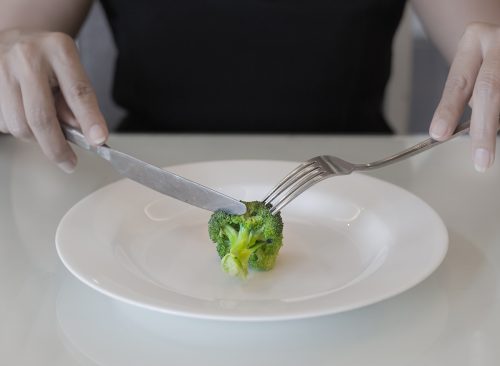
Not eating enough food can backfire and slow down your weight loss, experts warn. “Not eating enough can make it harder to lose weight,” Beal says. “If you’re not taking in enough to meet your daily requirements, your metabolism may slow down as your body goes into conservation mode.”
2
Being Too Restrictive
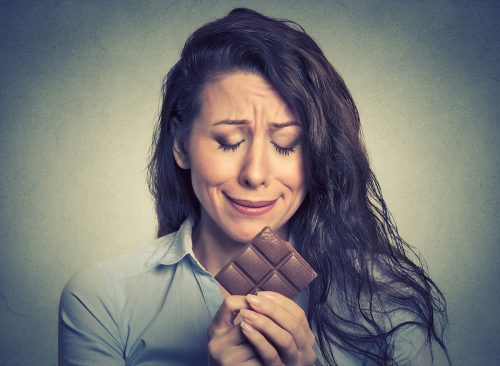
Eliminating entire food groups may make it difficult, if not impossible, to sustain your diet over the long term. “Being restrictive is not sustainable. You have to think about looking at this for the long haul,” registered dietitian Kathy McManus, director of the Department of Nutrition at Harvard-affiliated Brigham and Women’s Hospital, tells Harvard Health. “Make it balanced so you don’t feel deprived.”
3
Doing Too Much Too Fast
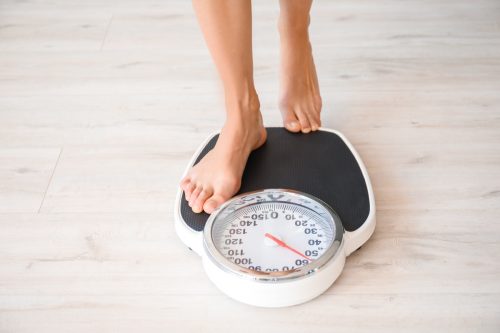
Crash dieting is completely unsustainable and can harm your health. “If you’re not going to [follow a diet] for the rest of your life, don’t do it at all,” Beal says. “If you want to lose weight, focus on losing two pounds a week at most. Start by knowing what you are putting in your mouth and the effects it may have on your body.”
4
Ignoring Calories

It’s helpful to know exactly how much you eat and when you eat to make weight loss easier. “Research shows that people who track their food intake if they’re trying to lose weight or monitor sodium in their diet, are more successful,” McManus says. “It makes you aware on a regular basis of what you’re putting in your mouth and how much you’re eating… Maybe you’ll see you’re overeating at night because you’re overly hungry.”
5
Drink Your Calories
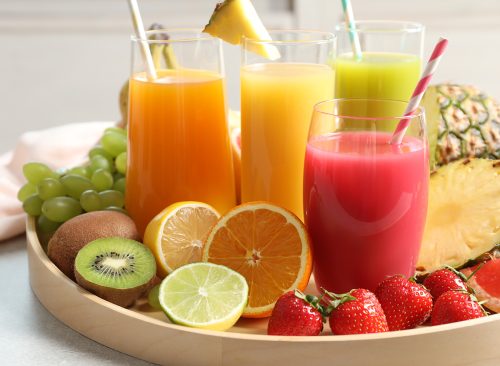
Eat your calories; don’t drink them. “One reason liquid calories sabotage weight loss is all in the name: calories,” primary care physician Susan Besser, MD, tells NBC News. “Persons who use liquids instead of food in a diet often think they are making healthy choices or lower calorie choices. But that isn’t necessarily so.”
6
Keep Unhealthy Foods Around
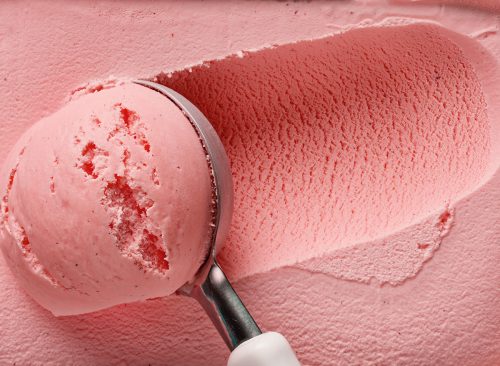
Support your weight loss efforts by removing unhealthy foods from your home. “The best thing to do is surround yourself with healthy food,” McManus says. “That’s what you’ll eat when you find yourself looking for a snack. But if you buy a half gallon of ice cream, eventually it will go into your stomach.”
7
Be Sedentary

Being active is important not just for weight loss but for overall health and happiness. “Physical activity is important if you are trying to lose weight or maintain a healthy weight,” says the CDC.
“More physical activity increases the number of calories your body uses for energy. Using calories through physical activity, combined with reducing the calories you eat, creates a calorie deficit that results in weight loss.” And if you enjoyed this article, take advantage of these 15 Quick Ways to Lose Body Fat Percentage in a Week.














